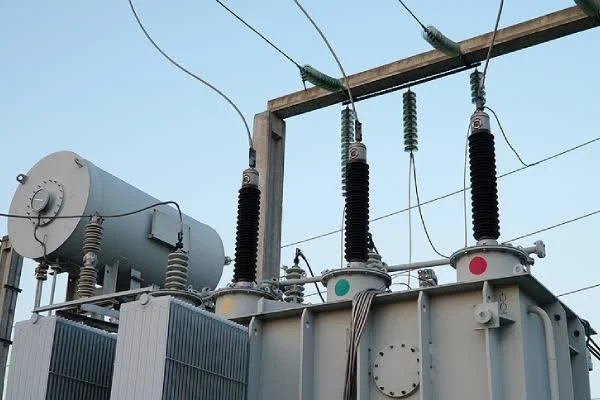TRANSFORMER MAINTENANCE:
The principal object of maintenance is to maintain the insulation in good condition. Moisture, dirt and excessive heat in contact with oxygen, are the main causes of insulation-
deterioration and avoidance of these will, in general, keep the insulation in good condition.
The limiting factor is the aging of the insulation and decline in the quality of the insulation during the aging process due to Chemical and Physical effects. The decay of the insulation follows the chemical reaction rate and in case of oil immersed transformers, if the sustained operating temperature exceeds the normal operating temperature of 75oC by about 8oC to 10oC, there will be a shortening of the life of the transformer.
FACTORS AFFECTING THE LIFE OF TRANSFORMER:
The following are the factors, which affect the life of transformer:-
i. Moisture
ii. Oxygen
iii. Solid impurities
iv. Varnishes
v. Slackness of windings.
i. Effect of Moisture: Transformer oil readily absorbs moisture from air. The effect of water in the oil is to decrease the dielectric strength of the oil as well as of the insulating paper which absorbs and stores the moisture due to higher affinity of water to paper. All possible preventive steps should, therefore, be taken to guard against moisture-penetration to the inside of the transformers. This will include blocking of all openings for free access of air in storage and frequent reactivation of breathers in service.
ii. Effect of Oxygen: Oxygen may be present in the transformer due to air remaining in
oil, air pockets trapped in the winding etc. Oxygen reacts on the cellulose of the insulation and the decomposed products of the cellulose lead to the formation of organic acids soluble in oil & sludge which blocks the free circulation of oil. The adverse effect of oxygen, which may be aggravated by catalytic action between hot oil and bare copper, increases the operating temperature rapidly. To take out the oxygen from the transformer, the oil should be filled under vacuum.
iii. Effect of solid impurities: The dielectric strength of the oil diminishes appreciably by minute quantities of solid impurities present in the oil. New transformers may contain particles of insulating materials and other solid impurities. It is, therefore, a good practice to filter the oil after it has been in service for a short time, especially for
the units of higher voltage class.
iv. Effect of varnishes: Some varnishes, particularly of the oxidizing type, enter readily and in reaction with transformer oil precipitate sludge on the windings. Synthetic varnishes, having acid inhibiting properties, generally delay the natural formation of acid and sludge in the oil. This fact should be borne in mind by the Maintenance Engineer when rewinding and replacing the coils during repairs of transformers.
v. Effect of slackness of windings: Although modern transformers have pre-shrunk coils, natural setting of coils may take place during the first few months’ operation. Slackness of windings may cause a failure due to repeated movements of coils which
may wear the conductor insulation at some places and lead to an inter-turn failure.
The coils condition or momentary short circuit may cause electric and magnetic unbalance and produce even greater displacement. It is, therefore, good practice to lift the core and windings of a transformer and fill up any slackness which may have
developed by tightening tie rods, pressure screws (where provided for this purpose) at the first inspection. In all cases, the instructions given by the manufacturer should be followed closely.
Reference Book
